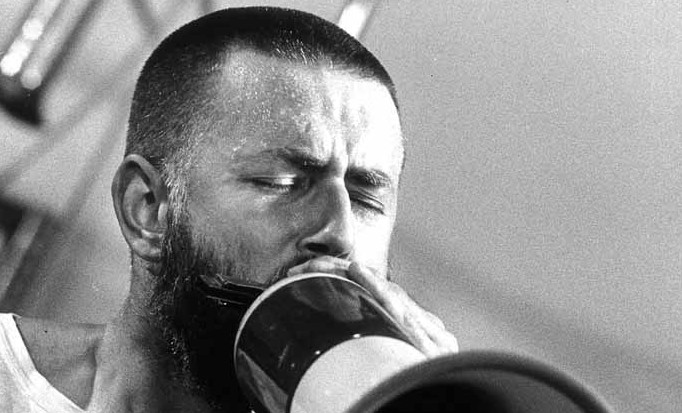
Han Bennink, © Roberto Masotti, 1978, Moers Jazz Festival

Han Bennink, © Roberto Masotti, 1978, Moers Jazz Festival
First in a series devoted to improvisation in Western art music, the conference presents the work of a study group that has been activated and coordinated by Gianmario Borio and Veniero Rizzardi.
Several aspects of improvisational practices and theories that were developed in the decade 1966-1976 inexperimental composition, in jazz, in rock music, are being examined by Virginia Anderson (University of Leicester), Vincenzo Caporaletti (Università di Macerata), Giovanni Giuriati (Università Roma,La Sapienza; Istituto di Studi Musicali Comparati, Fondazione Giorgio Cini), Giovanni Guaccero (Conservatorio “F. Cilea”, Reggio Calabria), Leo Izzo (Bologna), Philippe Michel (Université Paris VIII), Jens Papenburg (Humboldt Universität zu Berlin), Ingrid Pustijanac (Università di Pavia) e Mark Summers (University of Coventry).
A first session will present a mapping of the activities developed in three important European centres such asBerlin,London,Rome. The second one will discuss methods and principles of the analysis to be applied to improvised music as well as related theoretical issues. Finally the focus will be on the political and psychological implications of the improvisational activities.
A selected group of scholars and musicians will take part in the discussion: Enrico Bettinello (music critic and curator, Venezia), Pietro Cavallotti (Humboldt Universität zu Berlin), Daniele Goldoni (Università Ca’ Foscari, Venezia), Christopher Hobbs (composer, London) Alessandro Sbordoni (Conservatorio Santa Cecilia, Roma), Nicola Scaldaferri (Università degli Studi di Milano) and Marco Visconti Prasca (composer, Modena).
Programme
November, 20th 2012
10am – 12.30pm
Mapping Berlin, London and Rome Giovanni Guaccero, Jens Papenburg, Mark Summers
The session aims at documenting the most important venues, the activity of the main musicians, the features of the performing styles and the encounters of musicians with different backgrounds. Free improvised music had different centers in many European countries so that a complete documentation does not seem to be a realistic goal, at least for this stage of our work. We have restricted our overview to 3 cities that were particularly relevant for the development and dissemination of improvised music:Berlin,LondonandRome.
Lunch break
14.30am – 17pm
Analysing Improvised Music Vincenzo Caporaletti, Giovanni Giuriati, Ingrid Pustijanac
Free improvisation has the doubtful reputation of having no structure, presuming no theoretical background and being not suitable to analysis. On the other hand, a concentrate listening perceives constructive strategies and formal processes which can be described and qualified. Moreover, the publication of some improvisatory session on the recorded media, such as LPs induced in the audience the sense of a work character which was mostly unintended, but became an essential component in the subsequent reception (with consequences such as aesthetic evaluation, stylistic emulation etc.). The investigation of audiovisual documents gives further motives to understand improvised music as a performance complex with its own meaning and expression.
November, 21th 2012
10am – 12.30pm
Improvisation as a Social Practice Virginia Anderson, Leo Izzo, Philippe Michel
Political and ethical aspects of collective improvisation, also considering an explicit or embryonic theoretical work by the musicians themselves (this is especially the case of Cornelius Cardew/AMM, and also M.E.V.). This section will research the socio-psychological interactions within the groups, their implicit political issues as well as their external political concerns. A further perspective of this investigation should be ethnographic, with respect to the communitarian aspects in the practice of free improvisation, and the relation to a specific geographical and cultural context.
Lunch break
14.30am – 17pm
Final Discussion
All sessions will be chaired by G. Borio and V. Rizzardi.
Info:

Han Bennink, © Roberto Masotti, 1978, Moers Jazz Festival